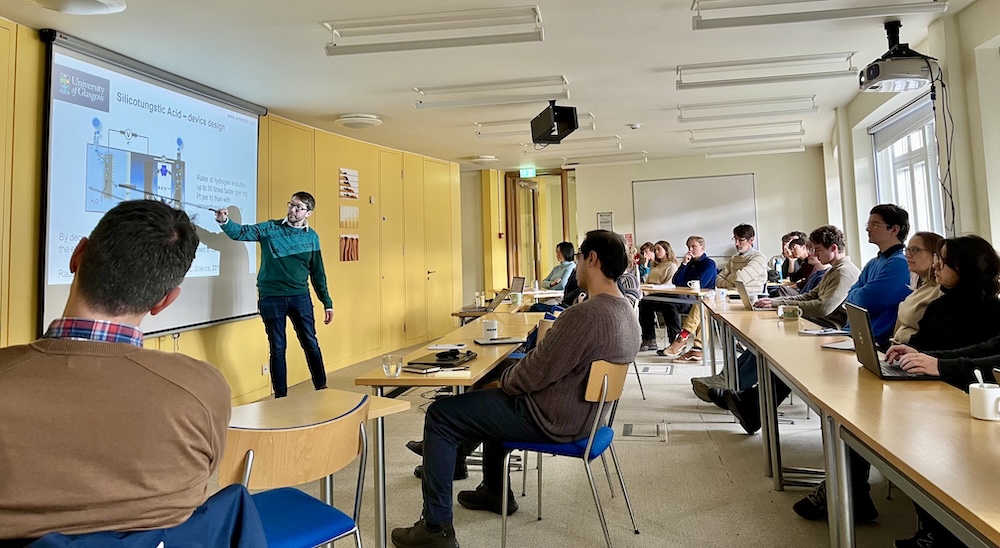The storage of renewably-generated energy as hydrogen via the electrolysis of water is a fundamental cornerstone of a sustainable hydrogen economy. Conventional electrolysers usually require stable power inputs in order to operate effectively and safely and so may be unsuited to harnessing renewable power, which is often intermittent and diffuse.
Professor Mark Symes, from the University of Glasgow, has been working on decoupled electrolysis. This has the potential to overcome some of the challenges surrounding electrolysis using low and/or sporadic power inputs. In fact, the decoupling of the two half reactions of water splitting allows the oxygen and hydrogen evolution reactions to be performed at different times, in different places and at rates that are not linked to each other.
During the weekly seminar today, professor Symes gave an overview of decoupled electrolysis using liquid redox mediators. With each half-reaction occurring separately, the hydrogen evolution reaction can be carried out at much improved rates compared to those possible in conventional water electrolysis. In addition, the ability to perform the hydrogen and oxygen reactions both in different spaces and at different times greatly increases flexibility for harvesting hydrogen safely and significantly reduces the need for any gas purification steps.
This work on decoupled electrolysis is ongoing, and you can read more about it on the webpage of professor Syme’s group here.
